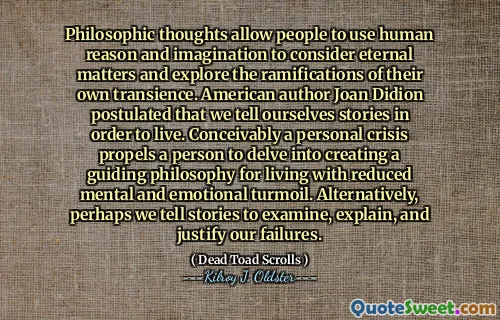
In the space of solitude, a writer attempts to remember how they became whom they are but nobody's memory is up to this demanding task. No matter how much a person harrows the fertile lanes of memory, some memories are lost by the passage of time, psychological defense mechanisms screen other memories from detection, the ephemeral character of other memories are invariably too elusive to arrest with reciprocal language.
This quote profoundly captures the intricate and often frustrating relationship between memory and identity. It highlights a fundamental human struggle: the desire to understand the self by delving into the past, particularly through the act of writing. The solitude referenced is not simply physical isolation but a mental and emotional space where introspection takes place. However, the task of reconstructing one's identity through memories is presented as inherently flawed and incomplete. Memories, according to the author, are elusive and fragile, susceptible to the eroding effects of time and psychological barriers.
The metaphor of "harrowing the fertile lanes of memory" evokes agricultural imagery, suggesting that our memories, much like fields, must be worked over to yield insight. Yet despite this effort, some memories vanish, others are shielded by defense mechanisms, and still others are too delicate or fleeting to be captured fully by language. This tension between what we remember and what slips away reflects the broader truth about human experience: our self-knowledge is forever partial and mediated by subjective filters.
Furthermore, the challenge of "arresting" memories through "reciprocal language" speaks to the inadequacy of words to fully communicate the nuances of experience. Language tries to pin down the ephemeral but often falls short, leading to gaps in understanding ourselves and our histories. This quote resonates on a universal level, not just for writers but for anyone attempting to piece together the narrative of their lives. It invites readers to embrace the ambiguities and accept that memory and identity are ongoing, imperfect constructs rather than definitive portraits.
Ultimately, this reflection encourages a compassionate approach to self-exploration—recognizing both the limits and the beauty within the act of remembering.









